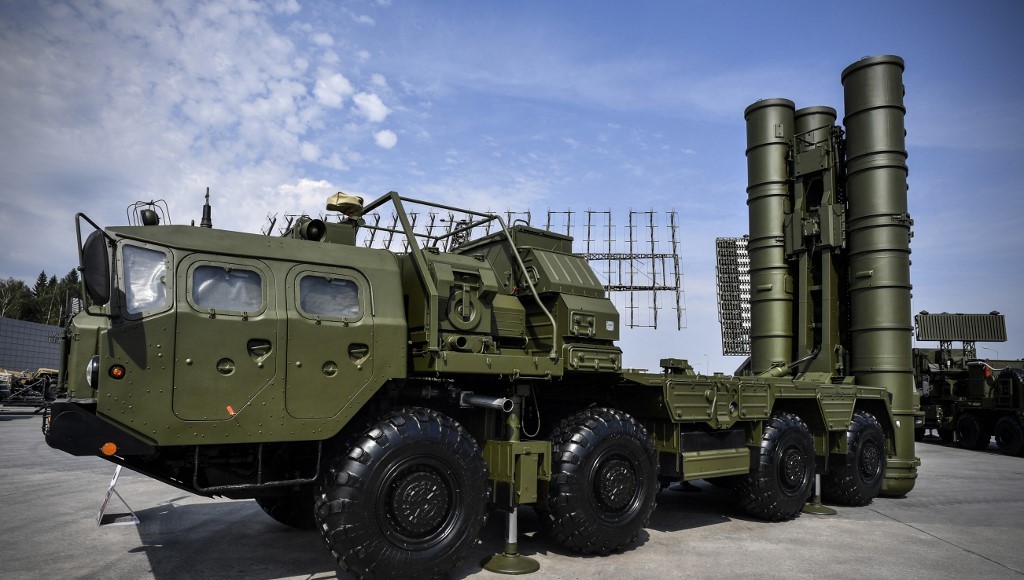Ali Yıldız*
Russian President Vladimir Putin’s invasion of Ukraine, which has entered its second month, seems to be fought mostly on land and in the air. The Ukrainian army and territorial defense forces have so far fought with valor, forcing the Russian army to change its entire strategy to say that the main goal of the “special military operation” was “liberating” the Donbas region, but not to take Kyiv.
The governments of the US and the UK believe that Russia’s initial goal of invading Kyiv and overturning the Ukrainian government has failed. The Pentagon said, however, that Russia could still inflict massive brutality on the country, including on Kyiv. We see that even today in continued airstrikes on the capital city. Indeed, for the very same reason, Ukrainian President Volodymyr Zelensky and other senior officials have been asking for either a NATO enforced “no-fly zone” over Ukraine or air defense systems that could change air superiority in favor of Ukraine. The Airforce of Ukraine specifically mentioned S300 and S400 missiles while speaking about their need for air defense systems. Although the no-fly zone option has been continuously rejected by NATO, the US and the UK, Washington has reportedly been in dialogue with several countries to urge them to transfer the Russian-made missiles they have to Ukraine. For instance, it was reported that Slovakia preliminarily agreed to provide Ukraine with S-300 missile systems to help defend against Russian airstrikes. As part of US efforts to supply Ukraine with Russian-made air defense systems, the US reportedly raised with Turkey the possibility of sending its Russian S-400 missile defense systems to Ukraine.
The American proposal on the S-400s, had it been realized, would have killed two birds with one stone. It would have ended the lingering problems between the US and Turkey over the acquisition of the S-400s while opening a wide wedge between Russia and Turkey as well as giving the Ukrainians a very effective air defense system. Although unrealistic, it was a perfect way to resolve a very difficult problem between the two allies. However, the idea of having an enemy supplied with modern Russian weaponry is unacceptable to Russia, so much so that as soon as Slovakia announced on March 17 that it would give its S-300 missile systems to Ukraine provided that Western allies give them a “proper replacement,” Russian Foreign Minister Sergei Lavrov reacted against such a possibility and said on March 18, “The transfer of Soviet S-300s from other countries to Ukraine is impossible and will be illegal, Moscow will not allow it.” He went on to say Russia would consider such a shipment as a “legitimate target.”
Turkey’s position
Turkey has repeatedly declared that it would not join sanctions against Russia and is maintaining its position that it can engage in a positive dialogue with both parties to the conflict. Although Russia tolerates Turkey selling to Ukraine Bayraktar TB2 armed drones, which are inflicting severe harm on Russian troops, it is unimaginable that it would do the same in the case of transferring S-400 missiles to Ukraine.
The Turkish government seems well aware of this as Fahrettin Altun, the Turkish Presidency’s communications director, characterized the idea as “quite unrealistic,” and as Turkey’s top diplomat Mevlüt Çavuşoğlu said: “The issue is not on the agenda, it is out of the question. As far as I know, the Americans spoke about that, but it has been ruled out.”
Legal perspective
The export of arms is a heavily regulated area in the Russian Federation. Federal Law No. 114-FZ on the Military-Technical Cooperation of the Russian Federation with Foreign States regulates the Russian defense industry and arms exports. According to Article 4 of this law, the essential principle of the legislation is imposing and maintaining a state monopoly “for activities in the sphere of military-technical cooperation,” in other words, in the field of arms trade. The law stipulates that the state monopoly shall be ensured by introducing a permission procedure for the export and import of military-purpose products and regulating military-technical cooperation in accordance with the military and political as well as economic interests of the Russian Federation. To this end, the Russian government in 2000 established a company called Rosoboronexport to work as the single state-controlled special exporter that sold S-400 missile systems to Turkey in 2019.
As the arms trade is not exclusively a profit-making business, all states take measures to prevent the arms they export from coming into the possession of undesirable third parties. Hence, international arms trade contracts often include a clause called a “re-export and transfer prohibition.” To formalize and implement this condition, exporter governments require an end-user certificate from the importer government. End-user certification ensures that the buyer is the final recipient and will not re-export or transfer it to another party without prior approval of the exporter.
It is unlikely that Russia would not include such a provision in the contract for the S-400 sale to Turkey. Indeed, in 2021 when a US senator proposed that the US purchase Russian S-400 missiles from Turkey, Maria Vorobyova, spokesperson for the Federal Service for Military-Technical Cooperation, said: “The buyers of our arms, before exporting them, must provide the Russian side with the end-user certificate. Therefore, delivery or re-export to a third country without the permission of the Russian side is impossible.”
In conclusion, from both a political and a legal perspective, the idea that Turkey would transfer its Russian S-400 missiles to Ukraine is untenable. It is an American dream but too good to be true.
* Ali Yıldız is a Brussels-based lawyer and founder of The Arrested Lawyers Initiative.

